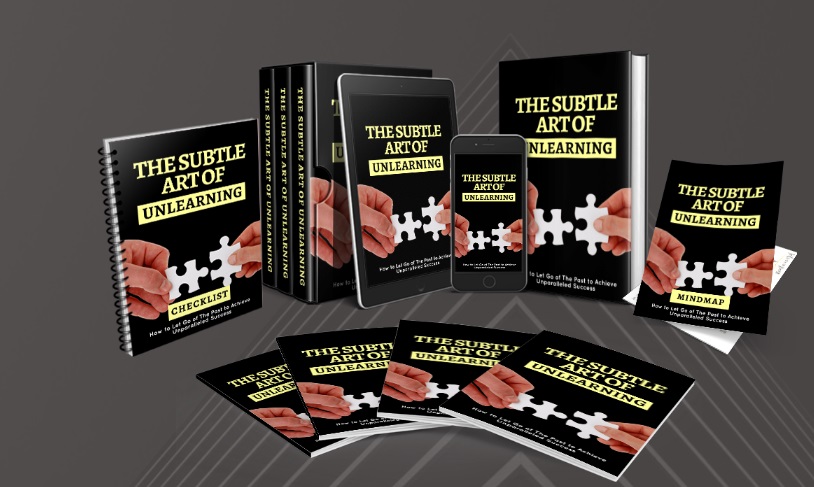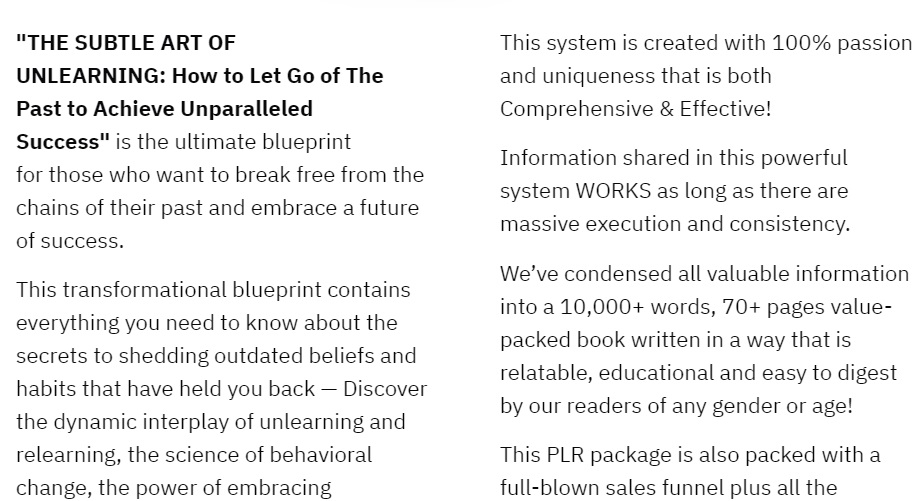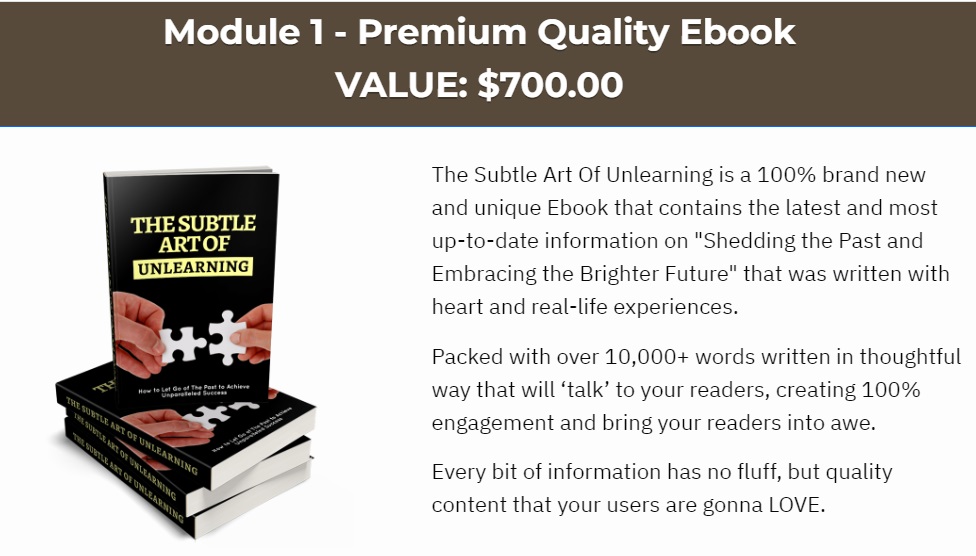
Unraveling the Power of Unlearning: A Review of “The Subtle Art Of Unlearning”
Introduction of The Subtle Art Of Unlearning:
In an era defined by the relentless pursuit of knowledge and self-improvement, the concept of unlearning emerges as a paradoxical yet profoundly transformative notion. As we navigate the complexities of modern life, unlearning becomes not only a skill but a necessity, allowing us to shed outdated beliefs, behaviors, and perspectives that hinder our growth. “The Subtle Art Of Unlearning,” penned by the insightful author under the pseudonym PLR, delves into this nuanced process with depth and clarity, offering readers a roadmap to liberation from the shackles of conventional wisdom.
At its core of The Subtle Art Of Unlearning,
PLR’s work challenges the ingrained assumption that learning is solely additive, emphasizing the equally vital role of subtraction in personal development. Drawing from a diverse array of disciplines including psychology, philosophy. And neuroscience, the author skillfully deconstructs the myth of knowledge as an immutable asset. Instead, “The Subtle Art Of Unlearning” celebrates the fluidity of the human mind, asserting that true wisdom lies not in accumulation but in discernment. And discerning what no longer serves us.

>>Click instant access and other details<<
One of the book’s most compelling aspects is its exploration of the psychological barriers that impede the process of unlearning. PLR astutely identifies the fear of uncertainty and the discomfort of relinquishing familiar beliefs as primary obstacles to growth. Through poignant anecdotes and practical exercises, the author encourages readers to confront these fears head-on, fostering a mindset of curiosity and openness to new possibilities.
Moreover:
The Subtle Art Of Unlearning” transcends individual introspection to address broader societal implications. PLR eloquently articulates how entrenched ideologies and systemic biases perpetuate cycles of ignorance and injustice. By advocating for collective unlearning on a societal scale, the book inspires readers to challenge the status quo and cultivate a more inclusive and empathetic world.
One of the book’s most resonant themes is the concept of radical acceptance—the willingness to embrace discomfort. And ambiguity as integral aspects of the human experience. PLR illustrates how embracing vulnerability and relinquishing control can lead to profound personal growth and authenticity. In doing so, “The Subtle Art Of Unlearning” offers a refreshing antidote to the relentless pursuit of perfection and certainty that characterizes contemporary culture.
In terms of style,
PLR’s prose is both eloquent and accessible, seamlessly blending philosophical insights with practical wisdom. The author’s conversational tone invites readers to embark on a journey of self-discovery. And introspection, making complex concepts digestible without sacrificing depth.

>>Click instant access and other details<<
While “The Subtle Art Of Unlearning
” is undeniably a thought-provoking and illuminating read, it is not without its limitations. Some readers may find the text overly idealistic or lacking in concrete strategies for implementing unlearning in their daily lives. Additionally, the pseudonymous nature of the author may raise questions about credibility and expertise for more skeptical readers.
In conclusion of The Subtle Art Of Unlearning,
“The Subtle Art Of Unlearning” is a timely and provocative exploration of a neglected aspect of personal and societal development. Through its blend of philosophical inquiry and practical guidance, PLR challenges readers to question deeply held assumptions and embrace the liberating power of unlearning. In an age characterized by information overload and ideological polarization. This book serves as a poignant reminder of the importance of intellectual humility. And the transformative potential of embracing the unknown.
